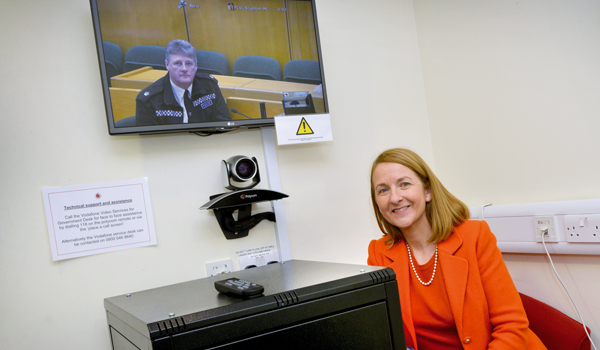Policing suppliers with financial intelligence
Intelligence-led policing is not only using technological advancements to solve crime. Merseyside Police has extended the idea of using intelligence-driven technology to cut down administration time for the processing of supplier invoices.

Intelligence-led policing is not only using technological advancements to solve crime. Merseyside Police has extended the idea of using intelligence-driven technology to cut down administration time for the processing of supplier invoices.
With more than one million people in a catchment area of more than 580,000 households, Merseyside Police is not only one of the UKs busiest forces, it is also one of the most successful in tackling crime.
Its Total Policing approach has helped reduce overall crime by 11 per cent in 2006/07 and 18 per cent in 2007/08 that equates to 48,000 fewer crimes in the last two years.
This pioneering one-team model mobilises the total resources of the force and directs them towards a total war on criminals and a focus on victim care.
There have more than 90 Total Policing operations since they were introduced in July 2006. Officers and community support officers from the neighbourhoods are joined by teams from Matrix, the anti-social behaviour taskforce, the dog section, mounted officers and air support.
For two days in every 28, the force runs large-scale operations to target criminals and reassure residents. The operations have focused on knife, drug and vehicle crime as well as anti-social behaviour and crime linked to licensed premises, the transport networks and rogue security companies.
These operations are supported by the investment in in the latest technologies officers on the ground use ANPR (automatic number plate recognition) technology, metal detector gloves and wands, heat-seeking cameras and the microdrone to disrupt criminals and gather evidence.
More than 4,000 full-time officers are employed to police Merseyside, and to ensure the success of Total Policing, these officers need to be confident that back office administration tasks, such as purchasing from suppliers, is an efficient operation. To ensure that its time is concentrated on results in the field, the force has implemented an intelligence-led financial system, Civica Financials.
Economies of scale
The force has now reduced the total number of suppliers to about 3,500, with around 300-400 key suppliers, the bulk of which receive electronic orders.
Phil Riley, head of exchequer services at Merseyside Police, explained: Before we didnt have such close control of our purchasing process which was why the number of suppliers was so high. We werent realising the economies of scale available for the large number of purchases we make, so we wanted to slim down the number of suppliers to gain cost savings while making the process more efficient.
Paying our suppliers efficiently is also part of maintaining a good reputation. We wanted to become known for paying on time as it adds to the credibility of the force.
Merseyside Police officers purchase over £1.2 million of products every month, ranging from stationery to hire cars, animal feeds to guns and ammunition.
To initiate the switch to the new system, Merseyside Police ensured that 300 of the larger suppliers with big transaction volumes were handled electronically, covering the bulk of payments. As a result, quick efficiency savings were made.
We pay 99 per cent of our invoices by BACS, Mr Riley added, and 70-75 per cent of our creditors are normally paid within 30 days. We have started emailing remittance advices to our main suppliers to further reduce costs.
Intelligent imaging
The new system makes it easier to process supplier invoices with features such as intelligent imaging. Invoices are fed into a scanner and the system recognises specific data such as telephone number or VAT number, intelligently matching this information to purchase orders raised and, if approved, can be processed for payment without human intervention. The software can also be set up to recognise specific fields according to the supplier.
Mr Riley said: We used to scan invoices post-payment for our records.



